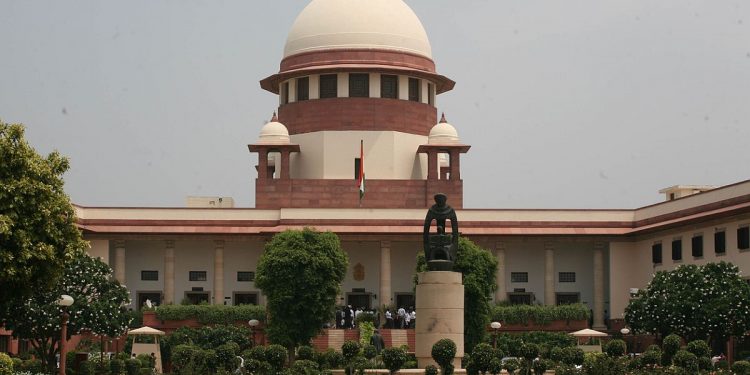Rahul Pradhan
The Supreme Court should look beyond the boundaries and try to reach approbation with the litigators. The usual camaraderie seems to be lost since lawyers have to travel miles to reach Delhi for the court matters. Article 130 of the Constitution provides “The Supreme Court shall sit in Delhi or in such other place or places, as the Chief Justice of India may, with the approval of the President, from time to time, appoint”. The pandemic couldn’t be any bigger and provides the best opportunity to cajole people in providing an ultimate alternative. Here we will try to understand the need for enhancing the reach of a common man to the Supreme Court. The workload of cases has reached an all-time high. The wide jurisdiction ranging from Original, Appellate to Advisory has brought an insurmountable task for a sole institution. Several civil law countries from Europe have specialised Constitutional Court and Supreme Courts to deal with specific matters exclusively, unlike India. The current demand pushes for a division of Supreme Court jurisdictions into Original Division (Constitutional), Appellate division (arising from Articles132, 134 etc.) and Advisory (Article 143). The current standards of justice delivery system need reforms as we move towards a new world order. The Supreme Court should also consider adopting a new method of a fixed judge-litigant ratio. This will allow a check on the rising pendency of cases and also set a precedent for High Courts, District and Sessions court, etc.
The right to approach the SC for appeal under Articles 132 and 134 is too far fletched when the aggrieved can’t afford to travel to Delhi and bear the costs. Article 39A allows the state to take measures for providing free legal aid to the poor and weaker sections of the society and ensures justice for all. The harmonious interpretation of both Article 130 and Article 39A, allows the state to take such measures. As per article 74 of the Constitution, the President has to act in aid and advice of the Council of Ministers. Interpreting these three Articles allow the Supreme Court to establish branches of Supreme Court outside Delhi.
The heterogeneous applicability of laws has avoided many petitions. Should the petitions be sponsored to make SC easily accessible or should the SC establish different branches to deal with matters? The latter looks necessary owing to the plight and penury of individuals.
Several High Courts have had circuit courts functioning meeting the demands for easier justice. Replicating the same for the Supreme Court is mere extension of the idea of easier access to justice. Four Law Commission reports and a Parliamentary committee report have suggested opening of SC branches in Mumbai, Chennai and Kolkata. The 10th, 11th and 18th Law Commissions had suggested for a Constitutional and an Appellate bench. The Constitutional division at the Delhi was suggested to deal with Constitutional and allied matters, and the Appellate division to deal with appellate matters. A Bill was introduced in Rajya Sabha as well to establish a permanent bench of SC in Kolkata, which demanded jurisdiction over states from East and North-East. Despite the efforts, the Supreme Court had struck down a petition seeking for an establishment of a circuit court. There arises a need for the review of the judgment when the needs and demands have made a paradigm shift in terms of pecuniary norms. The Cocid-19 pandemic has made things worse for litigators who would avoid otherwise taking the litigation to the Supreme Court. The court sessions have moved online, but are all lawyers’ tech savvy to adapt to the new world order of online dispute resolution? Once the pandemic is over, the world will return to a new normalcy. The time is ripe for the appropriate authorities to mend things and look forward for a new beginning.
The BJP-led government at the Centre was in state of disarray when asked to take a stand, unlike the Congress which considered it as an election agenda. The quaint fashioned attitude is often aggrandised by unsuitable pronouncement of criticism. Only time can tell if the pandemic has brought a change in the attitude.
The writer is an Odisha-based lawyer and independent researcher. He can be reached at [email protected].






































